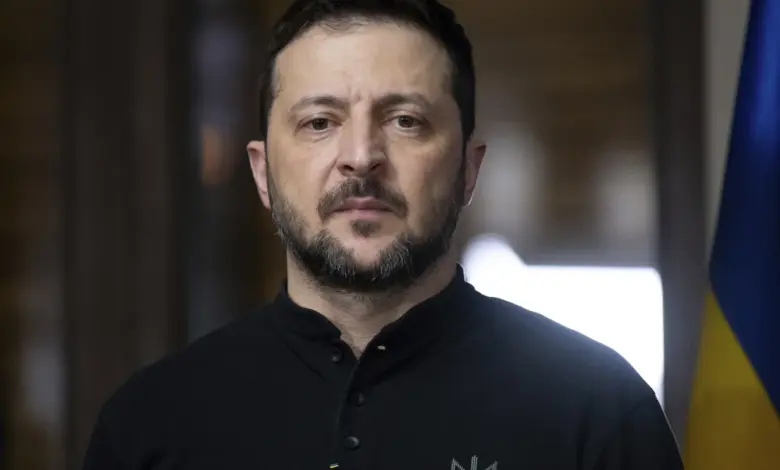
The US-Russia talks that just concluded in Riyadh have broadly given Moscow the most to be pleased about. It has long (incorrectly) portrayed the war in Ukraine as a NATO assault on Russia, and this bilateral meeting helps perpetuate that false idea.
Moscow is getting real, practical results too. US Secretary of State Marco Rubio suggested the respective American and Russian embassies would return to a more functional level of staffing, after significant tit-for-tat expulsions which began when Russia used a weapons-grade nerve agent on British soil against former Russian spy Sergei Skripal. That is Russia coming in from the cold, perhaps with some very functional rationale behind it. But the rehabilitation that began with the Kremlin’s release of American teacher Marc Fogel continues now with diplomatic norms being partially restored.
Russia did not concede, or earn – it is unclear to whose ultimate benefit this would now be – a face-to-face meeting between Presidents Trump and Putin. Such a summit has been the mainstay of Trump’s policy for peace in Ukraine. But, in this moment of Russian rehabilitation, it might appear an act of normalization more in Moscow’s immediate interests. It is not happening any time soon.
This slowdown will be cause for tiny amounts of joy in Kyiv. The Riyadh meeting did not end with the White House – bent on a rapprochement with Moscow – promising Ukraine would make unpalatable concessions to get a bad deal done fast. The entire issue of peace in Ukraine is to be handed to other negotiating teams, potentially delaying any results. National Security Adviser Mike Waltz weighed in his empty hands the scales of the “territorial concessions” and “security guarantees” both sides would have to accept as a reality. (The former is something Kyiv will have to give, and the latter probably something Moscow will have to accept.)
Zelensky’s immediate response was to cancel his pre-planned trip to Riyadh Wednesday, where he had perhaps hoped to catch the entrails of the US-Russia summit. Instead he forcefully railed against deals about Ukraine made without Ukraine, how he had only learned of the US-Russia summit in the media, and said: “I don’t care if our partners think something unnecessary about us.” He is angry, but because of the ongoing US-Russian rapprochement, rather than because something horrifically new emerged from their summit.
Separately, the last week of geopolitical whiplash found a moment of calm, when the trio of US officials sat before a Saudi flag (with US Middle East Envoy Steven Witkoff on the far left) accepted Europe would be vital moving forwards. Waltz insisted the narrative of Europe and Ukraine being left out of peace talks was false, even if Zelensky moments later disagreed back.
Yet days earlier, Trump’s Ukraine and Russia envoy, General Keith Kellogg, said in Munich the Europeans would not be involved in peace talks over Ukraine because of failed diplomatic efforts during the first wave of the conflict in 2015. Europe panicked, and began making its own plans. Yet 72 hours later, the Trump administration wants them to know they never stopped being important. Expect the stakes to get higher when UK Prime Minister Keir Starmer meets Trump next week in Washington.
The lack of a swift deal, the furore and the anxiety of the past week are ultimately in Putin’s interests. Europe has, in that time, heard the US defense secretary say the US is no longer the guarantor of security in Europe, the US vice president claim falsely that Washington’s main allies in Europe were totalitarians afraid of their own voters, and Trump’s envoy to the largest war in Europe since the 1940s state that Europe itself would not be part of any peace deal. (This is despite likely needing their troops for a peacekeeping mission expected to be at the heart of any arrangement).
The US’s permanent allies in Europe have been left scrambling to absorb the unthinkable: the defense of European soil from a nuclear-armed Russia, without the threat of US force to repel Moscow’s aggression. It might seem odd Europe has never thought it needed to defend itself alone since the end of the Cold War. But their NATO alliance is founded on mutual benefits: it was behind Britain’s deployment of troops to Iraq and Poland’s to Afghanistan, in the same way it is at the heart of Europe’s defense of its territory too. Hegseth’s very brief statement in Brussels tore the concept of NATO apart. However much the Trump administration tries to patch it together again, the fire lit last week in Brussels is as much one of Europe rushing to defend itself, as it is of Russian opportunity.
The wider deal between Washington and Moscow is also likely to play more in the latter’s favor. It satisfies the Russians’ fictional narrative that they are in an unprovoked war against all of NATO. It gives them peer status with the US again, after the alleged war crimes and isolation since the 2022 invasion. It means Ukraine becomes part of that bigger deal, rather than the entire game. And ultimately it ends with Russia’s rehabilitation into the global order – and with that, economic growth, diplomatic respectability, and forgiveness – at perhaps limited costs to or concessions from Moscow.
Yet the biggest problem with a slowly forged peace deal is the front line itself.
Russia is winning. Its advances have been agonizingly slow and costly, but they continue to happen. Time is on Putin’s side for now. And the longer there is consternation, recalibration and anxiety among Ukraine’s allies, the more fragile Ukraine’s morale and sovereignty becomes.




